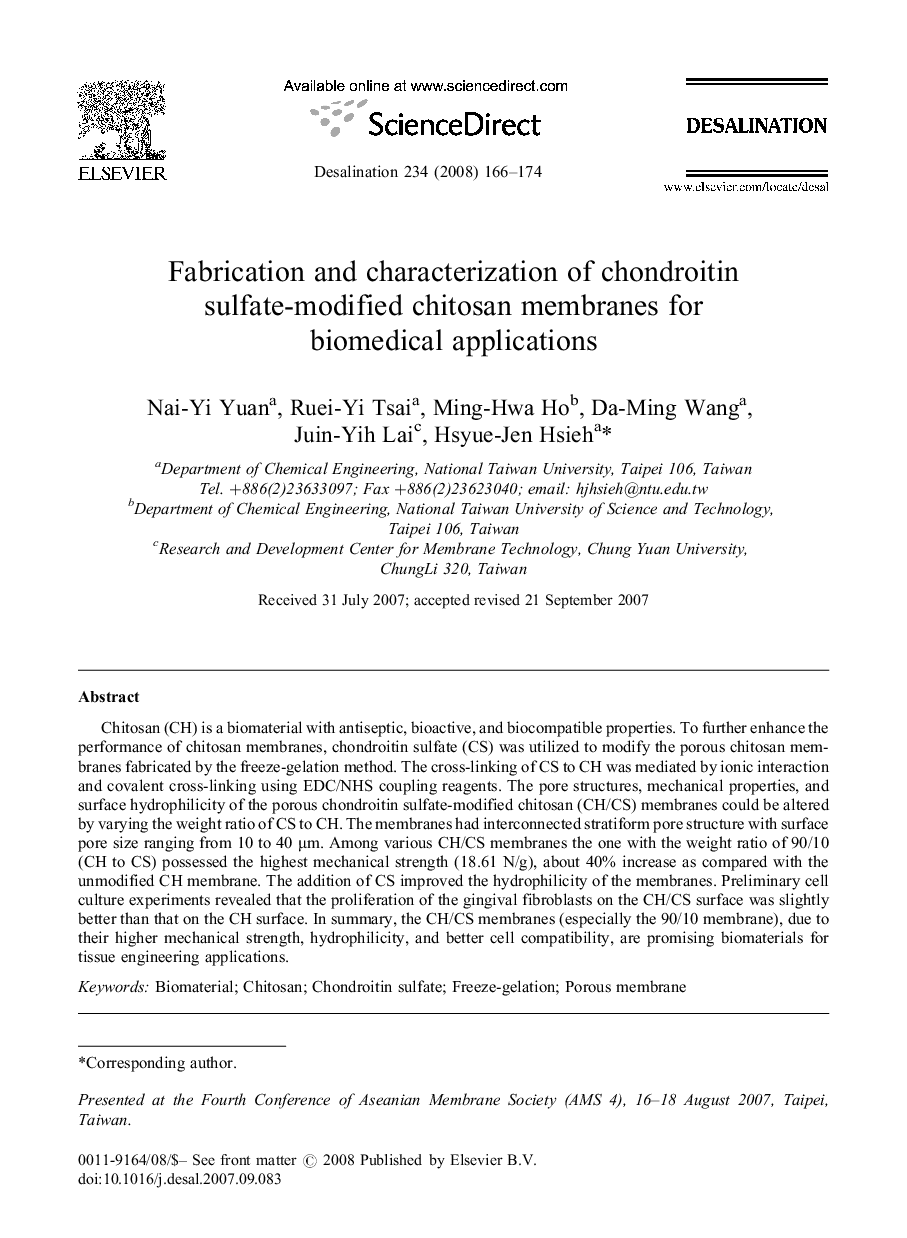| Article ID | Journal | Published Year | Pages | File Type |
|---|---|---|---|---|
| 626904 | Desalination | 2008 | 9 Pages |
Chitosan (CH) is a biomaterial with antiseptic, bioactive, and biocompatible properties. To further enhance the performance of chitosan membranes, chondroitin sulfate (CS) was utilized to modify the porous chitosan membranes fabricated by the freeze-gelation method. The cross-linking of CS to CH was mediated by ionic interaction and covalent cross-linking using EDC/NHS coupling reagents. The pore structures, mechanical properties, and surface hydrophilicity of the porous chondroitin sulfate-modified chitosan (CH/CS) membranes could be altered by varying the weight ratio of CS to CH. The membranes had interconnected stratiform pore structure with surface pore size ranging from 10 to 40 µm. Among various CH/CS membranes the one with the weight ratio of 90/10 (CH to CS) possessed the highest mechanical strength (18.61 N/g), about 40% increase as compared with the unmodified CH membrane. The addition of CS improved the hydrophilicity of the membranes. Preliminary cell culture experiments revealed that the proliferation of the gingival fibroblasts on the CH/CS surface was slightly better than that on the CH surface. In summary, the CH/CS membranes (especially the 90/10 membrane), due to their higher mechanical strength, hydrophilicity, and better cell compatibility, are promising biomaterials for tissue engineering applications.
